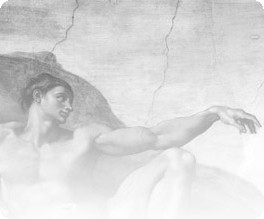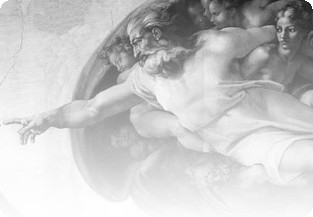 |
The Tactics of the So-Called Veterans of Truth |
 |
 |
The Tactics of the So-Called Veterans of Truth |
 |
|
|
1) Target the origins of the founder: It is counterproductive to attack the believer or their God - a movement's founder is the easiest target.This seems to be an oblique reference to William Irvine. The reason why I say it is oblique is because the only place William Irvine's name is mentioned is at the very bottom of the site (and then only as a "key word"). Regardless, it seems to be an indirect acknowledgement of the essential role Irvine played in the 2x2 "movement".
2) Target the weakest members: Focus upon the youngest or weakest in the faith. Firstly, they are impressionable, and secondly, their own failings are useful in faulting their faith.A person's individual failings should have no bearing whatsoever on the veracity and quality of their chosen faith. We all are humans who will inevitably fall short and suffer damage to our relationship with God. It should be noted that Prue does not bother to give examples, though, nor does she elaborate on what it actually means to "target" the youngest and weakest members. People who left the Truth Fellowship did so for a variety of reasons, and many of them are willing to discuss those reasons to anyone and everyone who will ask. Furthermore, there have been several websites created dealing with issues in the Truth Fellowship. This does not mean those ex-members are "targeting" anyone, weak or otherwise - any more than a pornographic magazine "targets" the person who goes out and buys it.
3) Strive over words: Claim an expertise in language and "discover" that biblical words donít mean what they appear to say. Thus imply that simple church folk lack critical theological, historical or language abilities.It is true that discussions can be hijacked by someone who insists on debating over the minutiae of intricate grammatical and other language issues. Ironically, Prue makes the pretense of not approving of this kind of activity (both on her site and on the Truth Meetings Message Board), but then she does the very thing she claims to dislike: in the Appendix under "Bible Translators she argues the translations of the Greek words for "virgin" (alma), "man" (anthropos), "humble", "betray", "spirit" (pneuma), "Sheol", "Gehenna", and "heaven".
4) Ad hominem attack: Challenge a personís belief by declaring that a person does not practice what he or she preaches, therefore that personís belief must also be wrong.This is a redundant variation of Tactic #2, where she claims VOTs target the weakest by using their failings to fault their faith. Ad hominem attacks are wrong because they use fallacious logic. For example, if a person preaches against adultery but then has an extra-marital affair, one might argue that his belief that adultery is wrong is now invalid. Of course this is incorrect because the character or actions of a person have nothing to do with that person's belief. Nonetheless, Prue demonstrates little hesitation to attack the alleged VOTs in the same way. Here are a few examples of her prejudicial statements attacking their collective integrity:
"VOT's are apostates who are in the business of self justification"
VOTs see the example of Christ "as saying nothing in particular about how they should live".
VOT's want to pull others down to their own level."
"The notion of an in-dwelling spirit which guides and teaches is simply too much for most people."
"People engaging in theological/philosophical debates demonstrate little appreciation or love of the simplicity of the Gospel, and usually are making statements about themselves." - isn't his entire website a theological/philosophical debate.....?
VOTs are "people with cavalier attitudes toward the gospel" who follow a "cheap, licentious, low-demand religion"
"The modern church doesn't lead or provide example, but rather allows itself to be led by secular influences such as cultural theorists; radical feminists, deep ecologists, Marxists and political activists. It has no substance, and acts merely as a weathercock of social attitudes."5) Take scripture out of context: Force meanings out of scripture that scripture never intended. Whole sections of text or even scriptural themes can be disallowed by other texts.Elsewhere Prue attacks what she calls the doctrine of Saved by Grace. She asserts that people who hold this belief justify it by the fact that Paul mentions "saved by grace" (I call it sola gratia in Latin) some 21 times in the New Testament. She says, however, that Paul also mentions the works we must do over 80 times. Because of this difference she disallows sola gratia and calls it a "liberal philosophy which seeks to dispense with many of the requirements the bible says are necessary for entering the kingdom of heaven".6) Use Irony: Use Freudian Projection to make others into what they themselves are. The critic then adopts the very behavior he or she accuses others of. An example of this is imagining that they are saved by grace, whilst falling from grace.I supppose Projection is ironic in that the person doing it is placing unacceptable impulses within herself onto someone else, but her example is simply not one of Projection by any definition within any of the psychiatric texts I consulted.7) Argue by implication: Master the half-truth to make deceitful assumptions.Half-truths and sweeping generalizations form the very foundation of Prue's arguments. For example, she implies that because Jesus and His followers did not have a formal theological training, no one else should, either (i.e., the Workers).
She supposes that a belief in salvation through God's grace alone means that a person is loosened from moral constraints within their "licentious, low-demand religion".
She assumes that because there was no specific name given to the earliest Christian movement that this means a group should not have a name now, either.
She imagines that for people who believe in the importance of bible study and studying themselves approved, "the notion of an in-dwelling spirit which guides and teaches is simply too much for most people". At no place in the website is there a serious acknowledgement of the plain fact that the first Christian church simply did not function the same way. A literate majority did not exist. There was no means of mass-production of bibles. The leisure time to sit and read the bible was limited. Most importantly, the canon of Scripture wasn't even decided until three hundred years later.
She postulates that early Christians met in homes not because of Roman persecution, but only because the Apostles did this at times. Although the form and structure of religious services during that time period were a matter of practical necessity, she implies that it should continue to be that way - even though there is absolutely no clear command (or even suggestion) from Jesus to do so.
She even uses that word "imply" in her discourse on what constitues Christian behavior, saying, "The struggle of the early church, such as the contentions over the gentile mission, lay in the fact that the standard was not explicitly stated, but implied through example..."
In fact, there are 21 instances where Prue uses qualifying statements like "most likely, and "it is possible" and "this suggests", and so on.8) Repetitively quote/isolate scripture: Sometimes the more people memorize highly specific verses the less comfortable they are with the bible in general.That's certainly possible. On that note, it is highly significant that Prue alludes to Korah's rebellion in Numbers 16 not once, not twice, not three times, but four times. (also, Matthew 7:13 is quoted twice, Matthew 11:18 twice, the Sermon on the Mount twice, and Matthew 7:21 twice).
Korah's Rebellion is often cited as an example of what happens when people challenge the authority of their religious leaders. Prue states, "This ministry had the care for the church. The apostles and workers had authority over the church, as was shown when the author of Hebrews exhorted his people to 'remember them which have the rule over you.'" This statement obviously stems from the belief that the ministry of the Workers is the only legitimate authority such that anyone who does not accept their authority is an apostate in the tradition of Korah and his followers.9) Trust the authority of extra-biblical material:One needs only to consider all the extrabiblical sources Prue trusts to bolster her statements:
American Heritage Dictionary
Wikipedia 2006
The Oxford Companion to the Bible three times
the historians Tacitus and Seutonius
reference to Marco Polo
"Bible commentators have long puzzled..."
"Historians who documented early church history..."
Ivan Jahnson, 17th Century Dutch ex-minister
"History shows..."
Polycarp's writings
"The authors Moynihan and Krauthammer
Francis Cardinal Arinze's 2003 speech at Georgetown University
R. Kirkwood, Chronicles Magazine, 2003
Summary
Defense mechanisms can be either healthy or detrimental. Accordingly, Projection becomes harmful when it is employed subconsciously in order to isolate yourself from the reality within or from the surrounding world. It can result in an avoidance of taking responsibility for your own thoughts and feelings. Projection is considered a primitive form of denial, an immature coping mechanism (Michael H. Ebert, Current Diagnosis & Treatment in Psychiatry McGraw-Hill, 2006) with features of paranoia. At the very least, Prue is guilty of intellectual inconsistency by engaging in the same activities she accuses her so-called Veterans of Truth.
- Clay Randall, May 29 2006
**UPDATE 2/16/11: Bert has taken down his website "The Story of the So-Called Veterans of Truth" and created 2 new ones: The First Christian Church and The New Covenant. In a message to me at the Truth Meetings Board he wrote, "Clay, without going through your links... aren't these relating to my old VOT site? I pulled it down. Parts of it will reappear in my new Q&A site..." For now, I plan to leave these articles up until Bert gives me a clear and convincing repudiation of his statements.
|back|